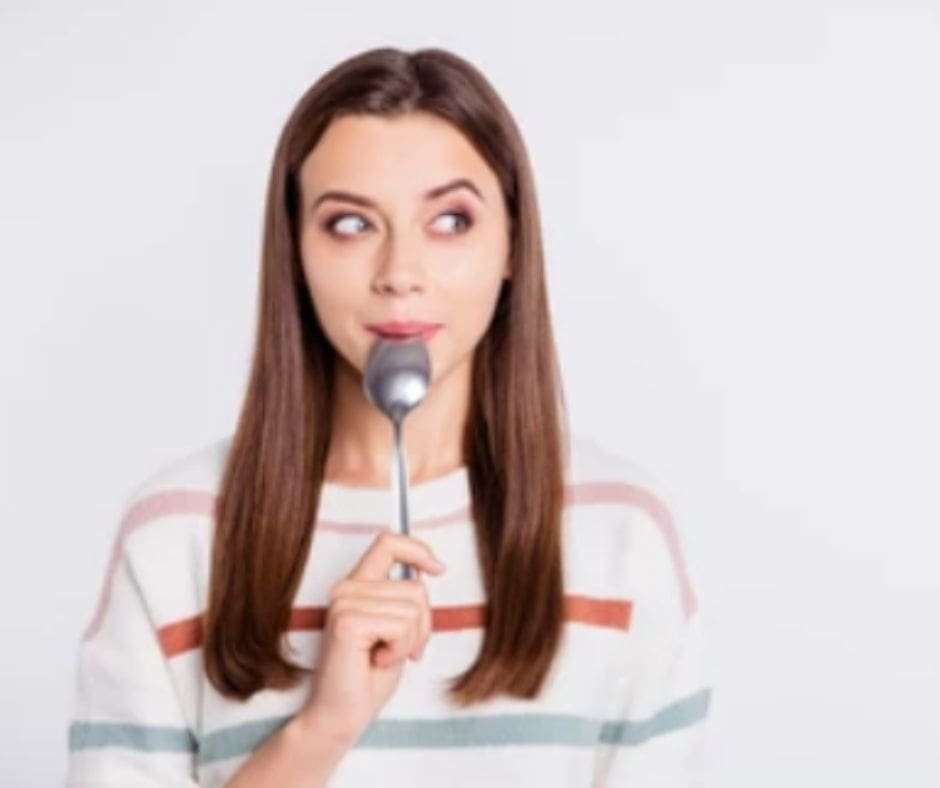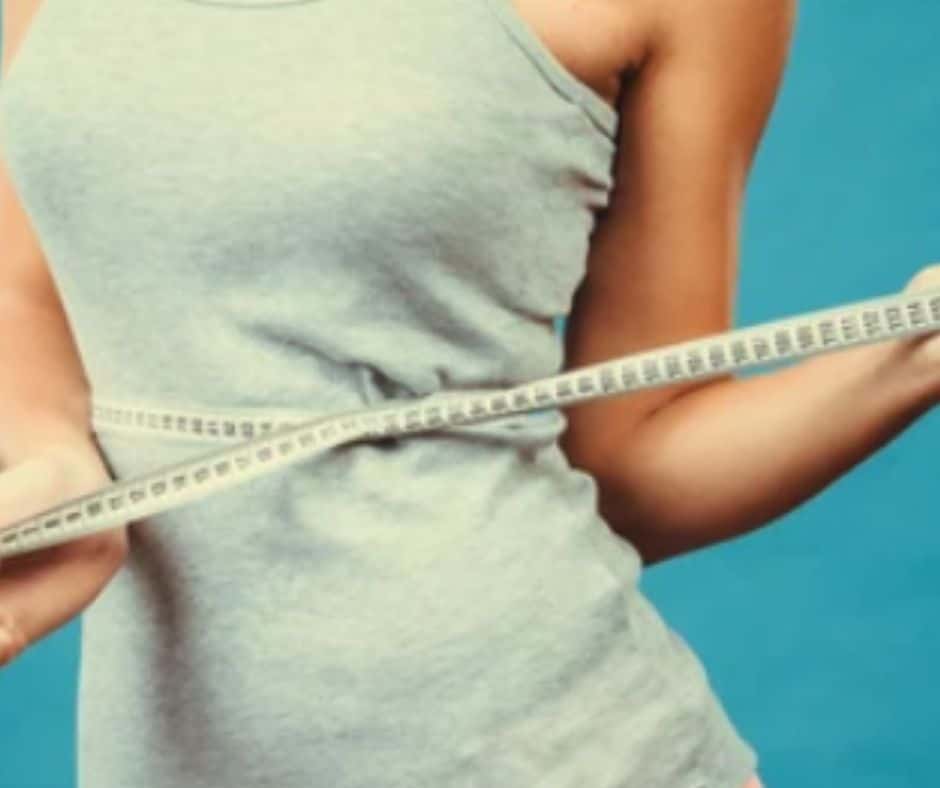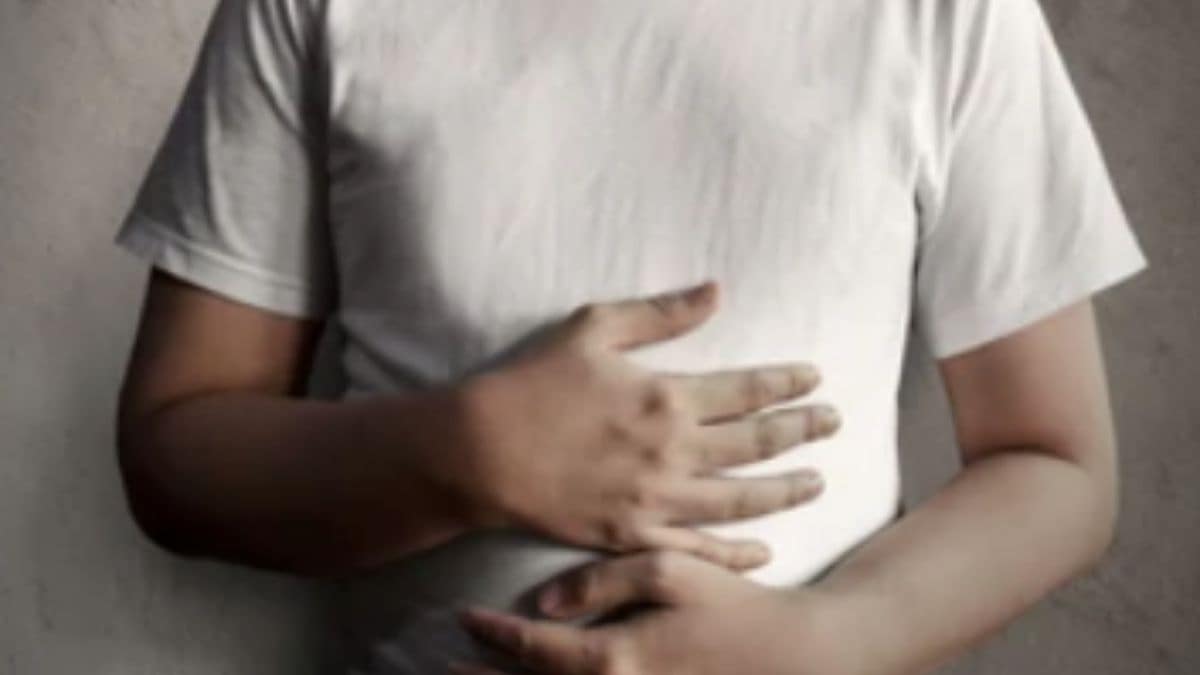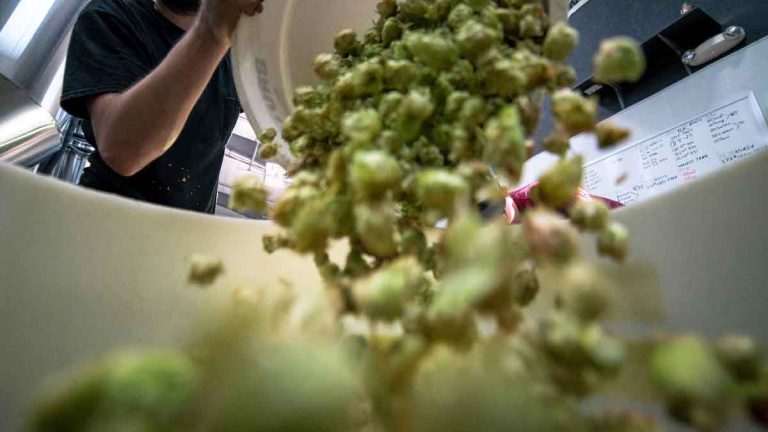Why does coffee make me hungry?
Why does coffee make me hungry? And why don’t other people feel the same? Nature and nurture could be the answer! Let us find out together.
Introduction
Table of Contents
In case you ever wondered why coffee makes you hungry? Well, most people enjoy visiting their nearby coffee shop to have a quick cup of caffeinated hot goodness. But, there are times you don’t feel like stopping by my favorite coffee shop. Sometimes you brew up a pot and want to indulge in a tall glass of it. Despite the height of most glasses, from the bottom to the top, there isn’t enough room for you to comfortably drink your beverage.
Coffee has an interesting effect on our bodies. It wakes us up, keeps us alert, and boosts our moods. Coffee doesn’t just give us energy; it also can make us feel hungry. If you have ever downed a few cups of coffee and noticed that your stomach starts to rumble, you might have wondered why coffee stimulates hunger. Does coffee stimulate your appetite? Or does caffeine play a role?
Coffee, unlike wine, is an acquired taste. Some people love it while others are indifferent. While we don’t want to get into the debate of whether or not coffee is healthy – that’s a whole different thing – we do like to discuss one side effect of drinking it: hunger.
Why do I feel hungry after coffee?

One reason is that your blood sugar will plummet. If you drink coffee on an empty stomach, it’s possible that your blood sugar can drop to a dangerous level.
Tannins are compounds found in foods and drinks such as tea, coffee, chocolate, red wine, and fruits.
They can bind with proteins in our bodies, which causes them to precipitate out of solution. This process is known as tannin-protein precipitation (TPP), and it occurs when tannins come into contact with proteins at the low pH of your stomach.
Once precipitated, these tannin-protein complexes make their way through your digestive system and sit in the pit of your stomach for several hours until your body excretes them. During this time, the tannin-protein complexes can cause indigestion and nausea, which is why many people feel queasy after eating or drinking coffee on an empty stomach.
That said, a few factors determine whether or not you react TPP; Genetics and gender play an important role in determining susceptibility to TPP, while caffeine consumption increases the likelihood of experiencing symptoms of TPP.
If you take coffee regularly, you have probably noticed that a morning cup of joe often leaves you feeling hungry. Although it’s only anecdotal evidence, a lot of people believe that coffee stimulates your appetite. Some dieters avoid it as part of their weight-loss plan.
The trouble is, there isn’t much scientific research to support the idea that coffee makes you hungrier than other caffeinated beverages.
Why is it bad to drink coffee on an empty stomach?

Amphetamines are a group of chemicals that increase your heart rate, alertness, blood pressure, and temperature. They also suppress your appetite.
Caffeine is also a stimulant that causes the body to release more adrenaline. Adrenaline is a hormone that triggers the “fight-or-flight” response and increases the amount of glucose in your blood. This is why caffeine makes you feel very alert.
As for the empty stomach, some people eat breakfast and then drink coffee when they go to work or school. The stomach is open, and there’s no food in the stomach to slow down the absorption of caffeine into the bloodstream. As a result, you feel the effects of caffeine quickly. But if there’s food in your stomach, it will slow down the absorption of caffeine into your bloodstream, so you don’t feel it so quickly.
Coffee is an enormous stimulant, so it’s straightforward to scare yourself when you’re not used to it. Like any other stimulant, coffee will cause your heart rate to increase and can make you feel jittery. However, if you consume coffee regularly, your body will adjust to it, and you will no longer feel these unwanted effects. Eventually, a cup of coffee will help keep you from needing to eat as often because caffeine has the same effect on your metabolism as intense exercise does.
TIP: Drink your coffee with milk or cream. The fat in milk or cream helps slow down the absorption of caffeine into your bloodstream, making it easier for some people to handle the stimulant.
Additionally, if you are sensitive to caffeine and consume too much at once, this can contribute to nausea and vomiting.
How does coffee help you lose weight?

It can help you burn calories, boost your energy levels and even provide disease protection.
Coffee can aid weight loss in several ways. The caffeine and polyphenols in coffee increase thermogenesis, also known as the body’s metabolic rate. Caffeine is also thought to inhibit the release of insulin, a hormone that signals cells in the body to store carbohydrates as fat.
With that being said, it’s important to drink coffee in moderation and to maintain a balanced diet. If you consume up to five cups of coffee every day and only eat junk food, you won’t lose weight. However, drinking coffee while maintaining healthy eating habits can help you lose weight.
How much coffee should I drink to lose weight?
You can lose weight with coffee (and enjoy the process), but you need to be smart about it. Drinking several cups a day may not be as helpful as you think. In fact, too much coffee can lead to headaches, an upset stomach or anxiety. It may also cause sleep disturbances and a reduction in your body’s ability to burn fat. The trick is to find a moderate amount that works for you and stick with it. One study found that drinking around three cups of coffee per day led to excellent weight loss benefits.
Research has also shown that coffee may have short-term benefits when combined with diet and exercise:
In one study, overweight women who drank coffee before working out burned more calories during their workouts than those who didn’t drink coffee.
It depends on your tolerance for caffeine. Most people feel the effects of caffeine after three or four cups (about 300 mg). If you don’t know how much caffeine is in your cup of joe, check the packaging or do an Internet search for “coffee milligrams.”
Coffee has been associated with weight loss since the 1980s when studies revealed that coffee drinkers tended to be leaner than non-drinkers. Caffeine—not to mention the antioxidants in coffee beans—may also have a role in regulating metabolism, helping you burn fat and preserving lean muscle mass.
Frequent coffee drinking is also associated with a lower body-mass index (BMI) and reduced risk of obesity.
The best part? Coffee doesn’t have to be black. Adding milk or cream to your morning blend can help you lose weight. The key appears to be calcium and Vitamin D, nutrients found naturally in milk products but added as supplements in some fortified coffees and teas. Studies suggest that these nutrients may play a role in the breakdown of fat cells and reduce the absorption of dietary fat. Plus, milk adds protein and carbs to your breakfast, which can help keep you full longer than plain ol’ java.*
If you’re a java junkie looking to shed some pounds, try:
Switching from regular coffee to antioxidant-rich “blended” brews.
Does coffee make you gain weight?
Coffee is often blamed for making people fat, but no evidence drinking coffee causes weight gain. Scientific research suggests that it may even have the opposite effect by increasing metabolism and helping you to burn more calories. Coffee may also reduce your appetite in the long term, which may also help with weight loss.
Myths about caffeine causing sleeplessness are just as prevalent as those about coffee causing weight gain. Caffeine has a mild sedative effect, which can help you feel drowsier if you’re feeling hyper or tense. However, this is a short-term effect. Because caffeine blocks the effects of adenosine – a neurotransmitter that makes us feel tired when we’re awake – it takes about two hours for the caffeine to wear off.
Coffee does not make you gain weight. Coffee, like any other meal or beverage, does not contribute to weight gain; it is the excess calories from any food or drink that can make you gain weight. The sources of these calories should be your focus when watching your weight, not coffee.
Taste and texture: coffee does contain caffeine, which is a stimulant. Caffeine can keep you awake and alert; hence, coffee may make you feel more awake or give you an energy boost. However, caffeine can also affect people by making them feel more tired or exhausted depending on the person and their body chemistry.
Coffee contains antioxidants that may help reduce the risk of heart disease and cancer. It also contains phytochemicals that may help protect against diabetes, Parkinson’s disease, Alzheimer’s disease and liver cancer. Coffee may help protect against gallstones and kidney stones as well.
Some people experience a “sickness syndrome” in studies on caffeinated beverages, which includes symptoms like nausea and stomach upset after consuming caffeinated beverages.
Caffeine, the primary component in coffee, has been linked to increased alertness and energy. However, some people experience the following caffeine side effects:
Less sleep: Caffeine keeps you awake by blocking a neurotransmitter called adenosine. Most of the world’s population consumes caffeine daily in an effort to prevent drowsiness.
For some people, caffeine causes insomnia instead of preventing it. Caffeine can interfere with your body’s natural ability to fall asleep. It can also cause nightmares or restless sleep.
Heart problems: Caffeine may aggravate cardiac arrhythmias, according to a study published in the Journal of the American Medical Association (JAMA). In addition, caffeine may increase blood pressure and cause irregular heartbeats in people with certain heart conditions.
Caffeine withdrawal symptoms: If you’ve had a few cups of coffee a day for several months and then suddenly quit cold turkey, you may experience headaches and fatigue as your body gets readjusted to a regular sleep schedule and functions without caffeine.
Headaches. Some people have headaches caused directly by caffeine consumption or withdrawal from too much caffeine.
Why does coffee make me sleepy?
Caffeine contains a chemical called trimethylxanthine, a central nervous system stimulant. It is also addictive, which explains why most people can’t give up coffee. Usually, when you ingest caffeine, it stimulates your brain and makes you feel more energetic.
The trouble is that caffeine’s stimulatory effect lasts only about four hours. When that wears off, and your energy level drops, you may be tired again. Drinking coffee later in the day won’t help because most of the caffeine has left your bloodstream by then.
When you drink coffee with sugar or cream, both of those substances slow down your body’s natural ability to metabolize caffeine. That causes the drug to build up in your bloodstream, producing even more sleepiness than usual.
Caffeine, through interfering with the body’s natural sleep cycle, might cause sleep issues in some people. The neurotransmitters serotonin and melatonin control the sleep cycle. When serotonin levels rise at night, they induce feelings of drowsiness; when melatonin levels increase at night, they cause feelings of sleepiness; and when these two chemicals rise together, you fall asleep quickly and have a good night’s sleep.
You may be a morning person, but do you get tired after your morning cup of joe? You may not be suffering from caffeine withdrawal. Instead, your body may be trying to tell you something.
According to experts, tiredness after drinking coffee has little to do with the actual caffeine in the drink. It is more related to your body’s sleepiness level and the time of day.
Here are some reasons why you might feel sleepy after drinking coffee:
You’re a night owl: Many people have a natural tendency to stay up late and sleep past sunrise. If this is you, it’s only natural that your body will try to slow things down as early in the day as possible. This could explain why you feel tired after drinking coffee at breakfast time.
You consume too much caffeine: If you drink too much (or too little) caffeine during the day, it may affect how alert your mind and body feel at different times, even if you haven’t had any caffeine lately. Consuming large amounts of caffeine late in the day can make it hard for people who are used to staying up late to fall asleep at night.
Your schedule changed: If you’ve recently switched work hours or started a new job, you might notice that you feel more sleepy than before, even after downing cups of coffee.
Does caffeine make you hornier?
According to a study, drinking coffee can make you horny. Coffee boosts blood flow to your genitals, which causes this. It stimulates the blood vessels to dilate, which promotes an increase in excitement. If you feel horny, you will get wet, just like a man’s erection. Apart from that, your nipples will get more upright.
It was also demonstrated that coffee, even if drank once a week, affected sex drive. Blood flow can be improved by having a good sex desire. Blood flow transports oxygen and nutrients to your cells, making you aroused while also improving your overall health.
You may find it extremely difficult to get out of bed in the morning. However, the fragrance of coffee can bring you to life by stimulating your senses. It can improve your concentration, alertness, and attentiveness. It’ll be easy for you to get horny as a result of this.
Do you realize that it’s challenging to become horny if you’re distracted? You will most likely achieve the best results if you concentrate and focus on the stated feeling. Yes, these factors are vital since it is difficult to get aroused if you are distracted.
Conclusion
Coffee makes you hungry for a variety of reasons. For one, it stimulates your central nervous system—which includes the vagus nerve. This nerve connects your brain and GI tract and is responsible for telling the brain when the gut is full. So, drinking coffee sends this message to your brain: “Hey, don’t forget about the food in your stomach. And by the way, would you be so kind as to send some more down there?”
Coffee is highly caloric and a surprisingly effective appetite suppressant—probably better than any other food or drink. The key is to drink it for the caffeine, not for any potential fat-burning properties. That being said, if you’re trying to watch your cholesterol, limit your intake of full-fat dairy products? To minimize the hazards that come with being overweight, make sure to include a healthy dosage of exercise in your daily routine.
If you’ve ever wondered why your morning cup of joe seems to make you hungrier, it’s likely because the caffeine in coffee stimulates nerves in your stomach that signal to your brain that you are hungry.







